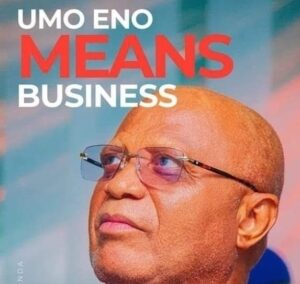
Thursday July 17, 2025
By TheNewsDESK |
As Nigeria continues to battle threats from insurgency, banditry, and cross-border terrorism, a security expert, Dr. Bright Echefu, has disclosed that Nigeria now produces military-grade bombs, drones, and other advanced surveillance equipment locally, The GUARDIAN reported.
He attributed the development to deliberate government policies aimed at promoting indigenous solutions to national security challenges.
Echefu, who is the Chairman of EIB Stractoc Limited, stated this during a tour and parley with journalists in Abuja, where he led a guided tour of the company’s subsidiaries and facilities.
The visit offered rare insight into the company’s operations and its role in supporting Nigeria’s security infrastructure.
He said the Federal Government’s insistence on prioritising local content in defence procurement has spurred rapid innovation among Nigerian manufacturers.
According to him, many of the technologies currently deployed by the military in the North-East and other hotspots are developed and supplied by Nigerian firms.
He said: “So, the truth is this: the Nigerian government has recognised the need to support homegrown companies. There are policies in place to assist indigenous companies. That’s why the Federal Government has made it mandatory that, before you start looking abroad, you must first check if there’s a Nigerian company that offers the services or products you need. That policy has really helped us.

“If you notice, we’re doing a lot in the area of equipment production for security agencies in Nigeria, and that’s because of the government’s policies. I can tell you that Nigeria doesn’t import uniforms anymore; they rely on local manufacturing companies like ours. Even bombs are now produced locally. For a long time, Defence Industries Corporation of Nigeria (DICON) has been producing bullets and has even started producing assault rifles.
“Many of the items currently being used in the North-East and some other locations are actually homegrown solutions, and we’re grateful to this government. It’s never been better. The government is encouraging Nigerian companies to play a major role in national security.”
Asked why insecurity persists in the country despite the local production of advanced weapons and surveillance tools, Echefu explained that security threats in Nigeria are complex and often embedded within communities.
He observed that recent jailbreaks in neighbouring countries have led to the influx of criminal elements into Nigeria, putting additional pressure on security forces.
Echefu said: “Security is broad, so depending on which aspect you’re talking about. The elements we refer to as threats have been with us for a very long time. Some of them even live in communities. You can’t just go into a community and destroy everything because of one person. So what is happening now is that there are isolated targets.
“Compared to what it was around 2008 to 2010, during the peak of Boko Haram activities, a lot has improved. It’s just unfortunate that the military doesn’t publicise their successes. You wouldn’t believe the amount of success the Armed Forces of Nigeria have recorded, but they are quiet about it.
“If you dig deeper, you’ll be shocked at how many threats have been neutralised. And again, recently, there was a jailbreak in the Niger Republic, and many elements from that side have migrated into Nigeria. So you can imagine the kind of pressure the Armed Forces of Nigeria are under. But they are doing extremely well.”
Echefu revealed that the company employs over 1,000 staff, adding that most of them are deployed in the field and collaborate with thousands of military personnel nationwide.
He also acknowledged that one of the major challenges facing the company is keeping up with demand.
“We now have electrical devices that allow us to detect things, even through shrubs. We have thermal imaging equipment that detects heat emissions from the human body, so we can tell when someone is hiding. Technology has advanced to the point where, even if you’re in a hole, we can find you, provided the resources are there.
“Most of the products we manufacture are made locally. Everything is 100 per cent Nigerian. We don’t have foreigners in our company. It’s entirely run by Nigerians. And that’s one of the reasons we’re growing: they believe in what we’re doing,” he added.

Related posts
Categories
- Advertisements (1)
- Agriculture (45)
- Breaking News (26)
- Business (598)
- Crime (989)
- Education (319)
- Entertainment (128)
- Features (13)
- For The Records (43)
- Foreign News (1,189)
- Health (219)
- Home News (332)
- Interview (9)
- Judiciary (349)
- Lifestyle (140)
- Local News (111)
- National News (1,448)
- Opinion (26)
- Politics (1,012)
- Religion (157)
- Science and Technology (125)
- Security (680)
- Sports (880)
- States' News (819)
- Transportation (330)
- Uncategorized (10)
